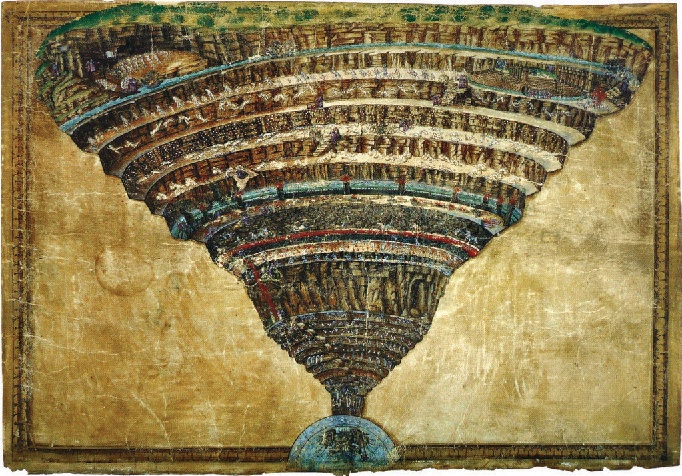Columbia College | Columbia University in the City of New York
Il Mio Tesoretto

COURTESY KEITH O’SHAUGHNESSY ’94
Had it not been for Columbia, I might never have become a poet — or at least not a published one. In fact, it took the most unlikely combination of already improbable “leonine” coincidences to bring about the publication of my first poem and, subsequently, my first book. The same goes for my second book, and soon enough, my third and fourth.
It all began one Thursday night in April 2007 — Maundy Thursday, to be exact, the eve of Good Friday on the liturgical calendar and occasion for a recitation of Dante’s Inferno, given annually and entire, at the Cathedral Church of St. John the Divine by a collection of prominent local literati.
That year I attended with my then mentor and now dear friend Rachel Hadas, daughter of Moses Hadas GSAS’30, celebrated Columbia classicist. There was something in the wisps of incense lingering in the air from the censer swung not two hours prior that recalled the haunted atmosphere at the first poetry reading I attended, at 15, in a stuffy old library at The Lawrenceville School, fittingly enough by Rachel’s mentor, James Merrill, an alumnus of the same.
Together we listened as the cantor reached the legendary passage in which Dante encounters his own mentor, Ser Brunetto, who enjoins his former pupil to remember him through his book Il Tesoretto (Little Treasure). I found myself glancing under Rachel’s chair at the shopping bag I would later learn contained a tiny portrait of Sr. Alighieri, itself a little treasure, which Merrill had owned and that she would that very night pass along, in turn, to me, on whose desk it continues to rest. To complete the circle, I would go on to write a poem, my first published, about the experience, titled, naturally, Il Mio Tesoretto, which would appear later that year, just as naturally, in Columbia Magazine.

CHART OF HELL BY BOTTICELLI
As literary fate would have it, Ifeanyi Menkiti JRN’65, a poet himself and longtime professor of philosophy at Wellesley, chanced upon the poem while leafing through his copy of the magazine. As it turns out, he was also the proprietor of the Grolier Poetry Book Shop, a veritable literary landmark on Harvard Square where the likes of T.S. Eliot, Robert Lowell, e.e. cummings and Elizabeth Bishop have consorted over the years. In an act wholly uncharacteristic of him, he sat down and penned a “fan letter” then and there.
Unsurprisingly, it is the only one I’ve ever received. But as Aesop’s lioness retorts to the vixen who mocks her for yielding a litter of just a single cub, “Only one, but a lion.” Better still, a year later it would lead to his calling me out of the blue to inform me that not only had he finally gotten around to reading the manuscript I’d handed him at lunch one day in Boston on a lark but also that he had decided to found a prize under the auspices of the store and my book Incommunicado would be its inaugural winner. Roar, Lion, Roar!
Today Il Mio Tesoretto can be found on the first page of another little treasure, my second book, Last Call for Ganymede, published by Menkiti and dedicated to Rachel. Due to the kind intervention of our mutual friend and fellow poet Moira Egan SOA’92, a copy currently resides on a writing table at The James Merrill House in Stonington, Conn., just as his Dante portrait does on one of mine. Best of all, in the mentee equivalent of being ushered by Beatrice unto Paradiso, Rachel recently helped secure me an invitation to join the infernal reading roster at St. John’s this March. I can only pray I get Canto XV.
Looking back, it seems almost prophetic that the first gift Rachel gave me, some five years before that night, was a copy of her book Pass It On, a title now literalized many times over in our friendship, like the simultaneously progressive and cyclical spiralings of Dante’s epic journey itself. Together they provide a vivid illustration of the kind of interactions between literary tradition and contemporary writers, between teachers and students, that lie at the very core of the Core Curriculum.
Wouldn’t you know it, but in one final stroke of poetic justice, by a contrapasso worthy of Dante himself, the ne’er-do-well who spent two weeks of his undergraduate career not reading the Inferno has gone on to spend the “lion’s share” of his professional career writing about it and teaching it in his community college’s equivalent of Literature Humanities, where, in a way, this all began.
Keith O’Shaughnessy ’94 teaches English at Camden County College in southern New Jersey, to which he commutes from his native Princeton (keithoshaughnessy@hotmail.com).
Issue Contents
Published three times a year by Columbia College for alumni, students, faculty, parents and friends.
Columbia Alumni Center
622 W. 113th St., MC 4530, 6th Fl.
New York, NY 10025
212-851-7852
cct@columbia.edu
Columbia Alumni Center
622 W. 113th St., MC 4530, 4th Fl.
New York, NY 10025
212-851-7488
ccalumni@columbia.edu

